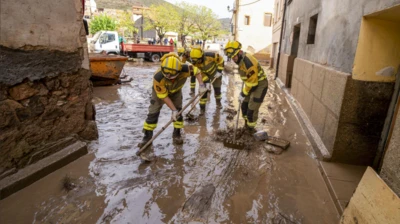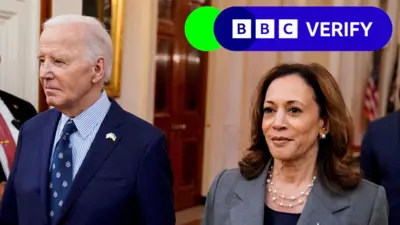We've updated our Privacy and Cookies Policy
We've made some important changes to our Privacy and Cookies Policy and we want you to know what this means for you and your data.
Obituary: General Vo Nguyen Giap
His surname Vo translates as "force" and his first name Giap means "strong armour", fitting perhaps for a man who helped bring about the defeat of major military powers.
A dedicated communist, Vo Nguyen Giap never received formal military training but made his reputation as a talented strategist who engineered victories against forces which were, technically, far better equipped.
Born in 1911 in Quang Binh Province in central Vietnam, then part of French Indochina, he was the son of a rice grower and attended local schools before, at the age of 14, joining a clandestine nationalist movement.
While studying at Hanoi University, from where he graduated with a doctorate, he taught history at a private school in the city.
He had a special interest in the military tactics of Napoleon, with one student recalling that he could draw the French Emperor's various battle plans from memory.
By 1938 he was a member of Ho Chi Minh's Indochinese Communist party, eventually helping him found a new coalition, the Vietnam Doc Lap Dong Minh Hoi, commonly known as Viet Minh, dedicated to ending French colonial rule.
Giap organised armed groups and in 1944, returned to Indochina to wage guerrilla war against the occupying Japanese.
Defeating France
Hanoi fell to Viet Minh forces on August 19th 1945 and Ho proclaimed the Democratic Republic of Vietnam, appointing Giap as his new interior minister.
The French recognised the new republic but, were reluctant to give up a rich source of rice and rubber in the south of the country, imposing tariffs to control international trade.
Giap assembled tens of thousands of guerrillas in the Tonkinese Mountains and began a hit-and-run campaign against French military and commercial interests.
Giap emphasised the need to attack in several locations at once, forcing the French to disperse their numerically superior forces.
His tactics, subsequently published in his 1962 book, People's War, People's Army, would be used to devastating effect against the Americans 20 years later.
The climax came in the valley of Dien Bien Phu in 1954 after the French parachuted in 12,000 troops, planning to take on Giap's forces in a pitched battle.
Unknown to the French, Giap had acquired US-made heavy guns which he had set up in the hills surrounding the drop zone.
The French forces, trapped in the valley, suffered a bombardment that lasted almost two months and lost 4,000 men before they surrendered in May, a victory which signalled the end of French colonial rule in the region.
Tet Offensive
A ceasefire was signed in 1954 which divided Vietnam into two with promises of a referendum among all Vietnamese to determine the country's future.
After the regime in the south reneged on the promise of a vote, a group of nationalists formed the National Liberation Front - or the Viet Cong as they were termed by American soldiers.
Fearful of the growth of communist influence in Vietnam the US committed aid and advisers to the south.
In 1965 the US landed troops in Vietnam and Giap committed divisions of North Vietnamese soldiers to back up the Viet Cong forces in the South.
He believed that the Americans had no stomach for a prolonged conflict in Vietnam. "To fight a protracted war is a big defeat for them,â he argued. "Their morale is lower than the grass."
Giap has long been credited with launching the hugely significant Tet offensive, but recent research suggests that he may in fact have been against this push - and he was visiting the Hungarian capital, Budapest, at the time of the campaign.
Coinciding with Tet, or the Lunar New Year in 1968, Viet Cong and North Vietnamese forces attacked more than 40 provincial capitals and went into Saigon itself even entering the US embassy.
They were eventually thrown back having lost more than 15,000 men but it was a massive psychological blow for the US, hardening opposition to the war back in America and contributing to the decision to withdraw.
Military legacy
In 1975, two years after the final American combat troops had left Vietnam, communist forces took Saigon and proclaimed the Socialist Republic of Vietnam.
Giap retained his position as Minister of Defence and was appointed Deputy Prime Minister in 1976, and remained in that post until 1991 .
He published a number of works on military strategy with at least one historian comparing him with leaders such as Wellington, Rommel and MacArthur.
The man known by his troops as "The Volcano" because of his ability to explode with rage did not receive universal approval.
The US commander in Vietnam, General Westmoreland deplored Giap's seeming cavalier attitude to large numbers of casualties among his own troops.
"Such a disregard for human life," said Westmoreland, "may make a formidable adversary but it does not make a military genius."
But well into his 90s he remained alert and engaged in Vietnam's current affairs and politics, meeting world leaders and speaking out about issues close to his heart.
Top Stories
More to explore
Most read
Content is not available








